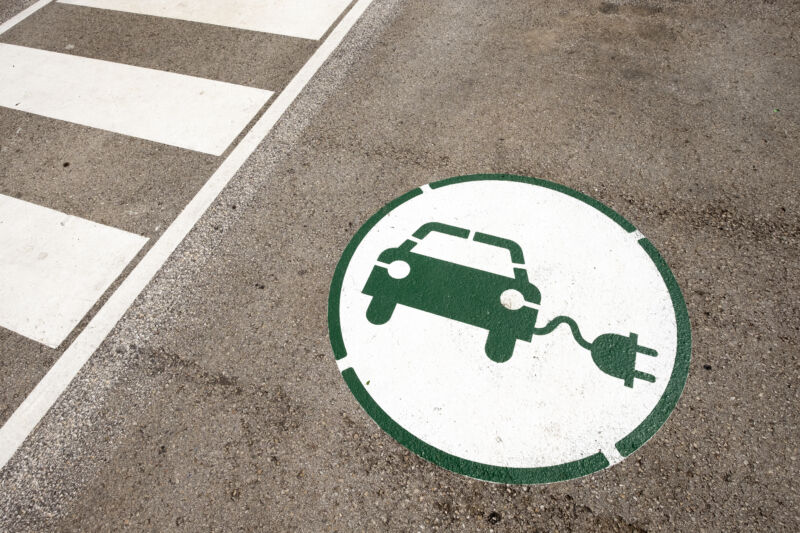got the plug? —
The awards are part of a $7.5 billion program for EV charger infrastructure.

Getty Images
The federal government awarded another $521 million in EV charger funding today. It’s the latest tranche of money to be awarded from a $7.5 billion program authorized by the 2022 Inflation Reduction Act, which aims to build out fast chargers along interstate highways as well as bringing charging infrastructure to underserved communities.
$321 million from today’s announcement will be spent on 41 different projects across the country—these projects are a mix of level 2 AC chargers as well as DC fast chargers. The remaining $200 million will continue funding DC fast chargers along designated highway corridors.
The Joint Office of Energy and Transportation, which administers the federal funding, called out a $15 million project to install chargers at 53 sites in Milwaukee and a $3.9 million project to install publicly accessible chargers on the Sioux Reservation in North Dakota as examples of the latest awards.
“Today’s investments in public community charging fill crucial gaps and provide the foundation for a zero-emission future where everyone can choose to ride or drive electric for greater individual convenience and reduced fueling costs, as well as cleaner air and lower healthcare costs for all Americans,” said Gabe Kline, executive director of the Joint Office of Energy and Transportation.
The Biden administration set a goal of 500,000 EV chargers nationwide by 2030. The Joint Office’s latest data shows more than 189,000 chargers across the country, although fewer than 44,000 of these were DC fast chargers.
But it cites real improvements over the past few years—56 percent of the most heavily trafficked highways have a fast charger every 50 miles, up from 38 percent in January 2021. And in June, it says an additional 3,000 charging ports were added to the national network. Other funding has gone to repairing or upgrading existing infrastructure, starting with a currently inoperable site in Washington, DC.
At the same time, progress has not been especially rapid for the highway charger NEVI (National Electric Vehicle Infrastructure) program. NEVI funds are administered by the states, similar to the way they manage federal highway funding, and the extra layers of bureaucracy have meant that the first NEVI-funded charging station—located in Ohio—only became operational in mid-December 2023.